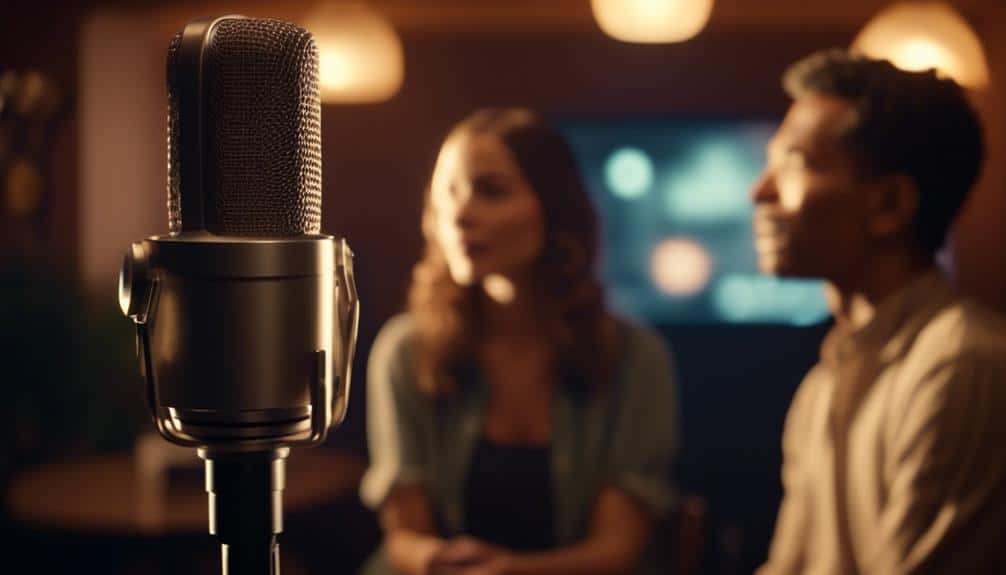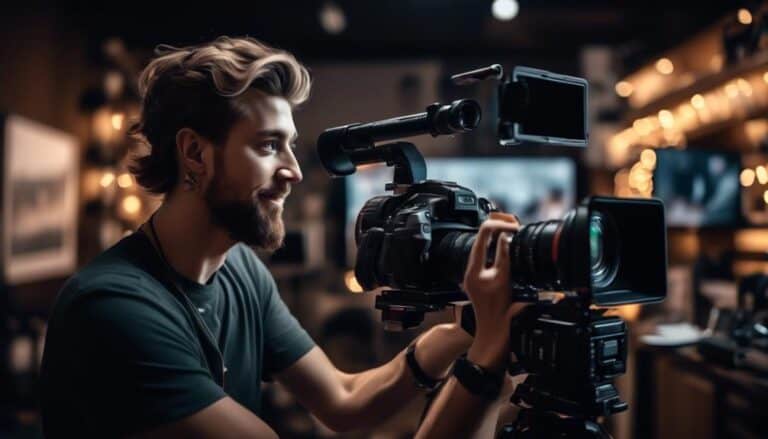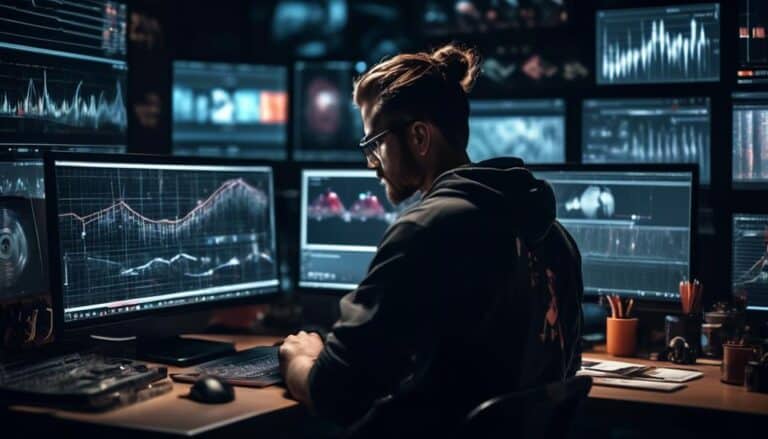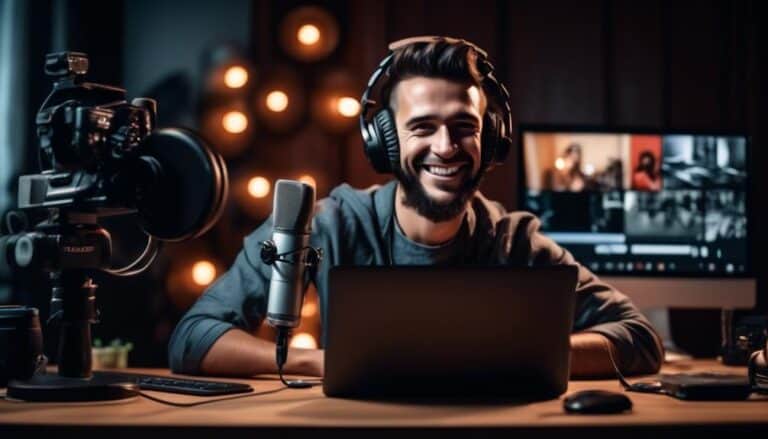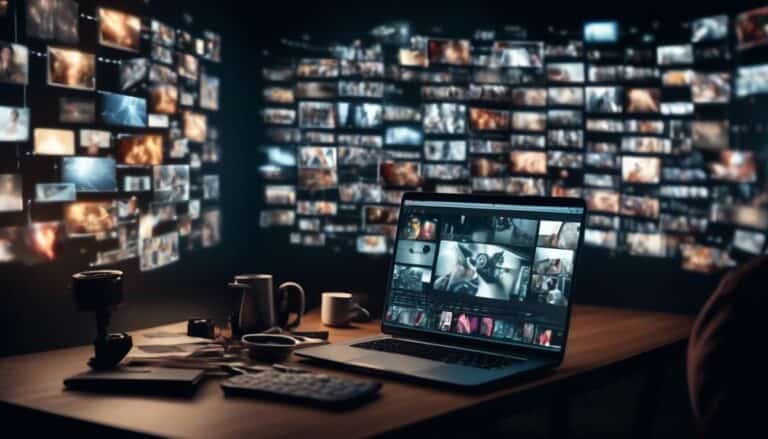The Art of the Interview: Recording Techniques for Captivating Conversations
When it comes to interviewing, the art of capturing captivating conversations lies not only in the questions you ask but also in the recording techniques you employ. Understanding how to effectively record an interview can make all the difference in bringing your conversations to life.
From selecting the right equipment to creating an optimal recording environment, each step plays a crucial role in ensuring the quality and impact of your interviews. By mastering these techniques, you can elevate your interviews from ordinary to extraordinary, leaving your listeners fully engaged and eager for more insights.
Key Takeaways
- Choose recording equipment that suits your needs and budget, considering factors like wireless vs. wired options and mobility requirements.
- Create a conducive recording environment by using soundproofing materials, rugs or carpets for minimizing echoing, and investing in acoustic panels.
- Prepare thoroughly for interviews by researching guests, confirming availability, setting objectives, and ensuring a seamless process.
- Improve interview quality through active listening techniques such as maintaining eye contact, using verbal cues, practicing reflective listening, and enhancing interactions.
Choosing the Right Recording Equipment
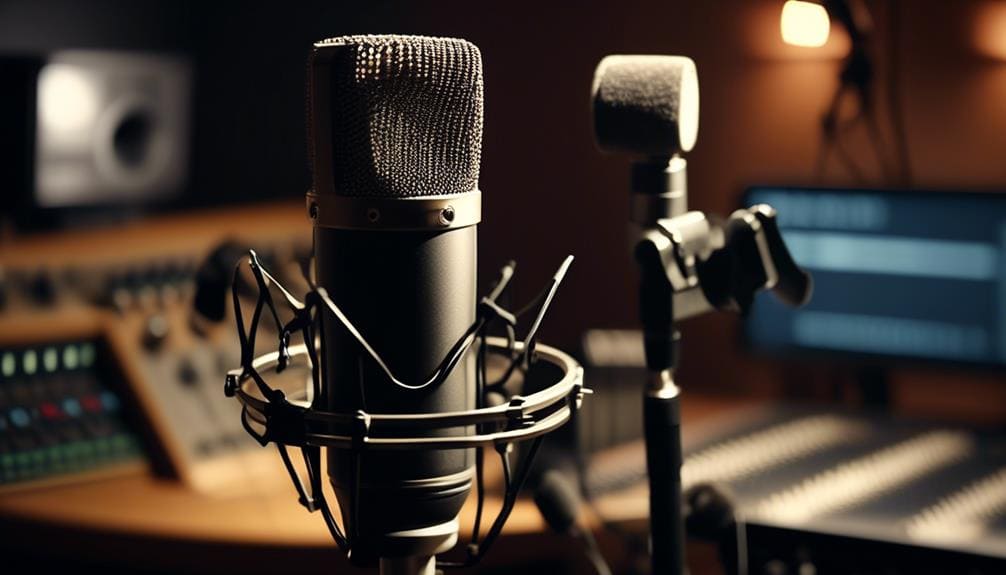
To ensure high-quality recordings, select recording equipment that suits your specific needs and budget. When deciding between wireless and wired options, consider the flexibility and convenience of wireless systems versus the reliability and consistency of wired connections. Wireless setups provide freedom of movement but can be susceptible to interference, while wired configurations offer a stable connection but limit mobility. Your choice should align with the nature of your recordings and the environment in which you'll be working.
Similarly, when choosing between portable and stationary equipment, think about the level of mobility you require. Portable recorders are ideal for on-the-go recordings or outdoor interviews, offering convenience and ease of transport. On the other hand, stationary setups are perfect for controlled environments where stability and advanced features are paramount. By assessing your recording needs and considering the advantages of wireless versus wired and portable versus stationary options, you can select the right equipment to enhance your recording process.
Setting Up the Recording Environment
Consider the impact of ambient noise and acoustics on your recording environment for optimal sound quality. When setting up the space for your interview, paying attention to soundproofing tips and lighting setup can make a significant difference in the final recording. Here's how to create an ideal recording environment:
- Soundproofing Tips:
- Use heavy curtains or soundproof blankets to dampen outside noise.
- Place rugs or carpets on hard floors to reduce echoing.
- Consider investing in acoustic panels to minimize reverberations in the room.
- Lighting Setup:
- Position lights strategically to avoid harsh shadows on the subject's face.
- Use diffusers or softboxes to create a flattering, even light.
- Adjust the brightness and color temperature to enhance the visual appeal of the recording.
Conducting Pre-Interview Checks
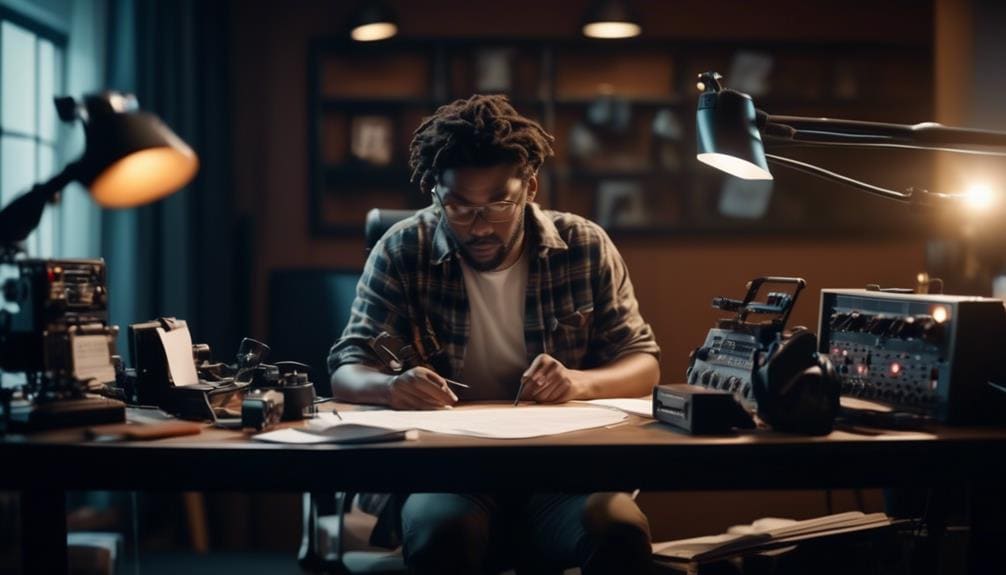
Performing thorough pre-interview checks ensures a smooth and successful recording session. Before diving into your interview, it's crucial to conduct background research on your guest to have a better understanding of their expertise and experiences. Additionally, confirming availability with your guest helps prevent any last-minute scheduling conflicts, ensuring that both parties are ready and prepared for the conversation.
When conducting pre-interview checks, it's essential to cover all bases to guarantee a seamless interview process. Below is a table outlining key steps for effective pre-interview checks:
| Pre-Interview Checks | Description | Importance |
|---|---|---|
| Background Research | Researching the guest's background | Helps tailor questions |
| Confirm Availability | Ensuring the guest's availability | Prevents scheduling conflicts |
| Set Interview Objectives | Clarifying goals for the interview | Guides the conversation |
Techniques for Active Listening
Before engaging in your conversation, honing your skills in active listening will enhance the depth and quality of your interactions. To truly master this art, consider the following engagement strategies and communication tips:
- Maintain Eye Contact: By looking directly at the speaker, you convey interest and attentiveness, fostering a deeper connection.
- Use Verbal Cues: Nodding your head or uttering brief affirmations like 'I see' or 'Go on' shows that you're actively engaged in the conversation.
- Reflective Listening: Summarize what the speaker has said to confirm your understanding and show empathy, creating a safe space for open dialogue.
Ensuring Quality Post-Production
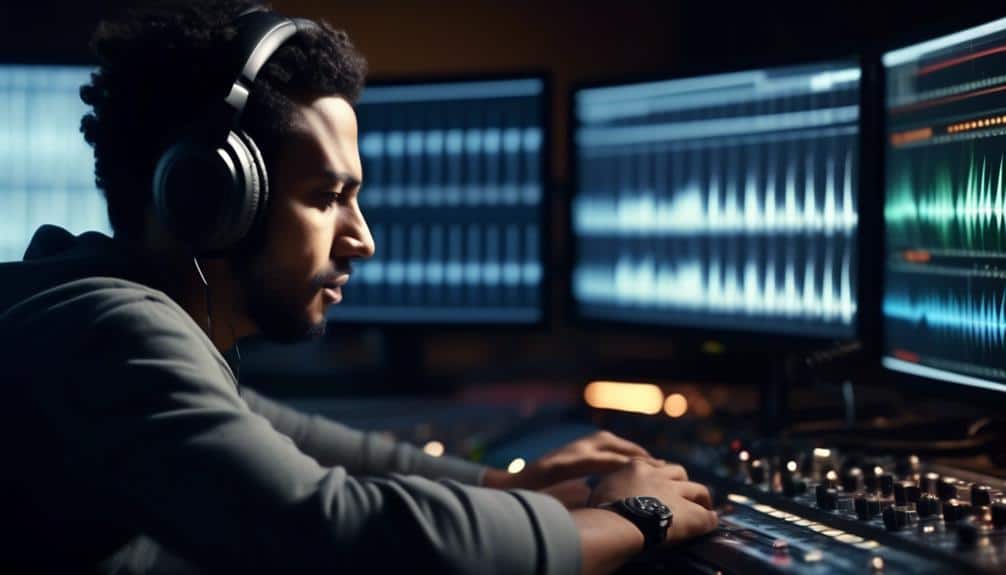
To ensure the highest quality in post-production, meticulous attention to detail is paramount. When it comes to editing tips, remember to listen through the entire conversation to identify areas that may need tightening up. Cut out any unnecessary pauses or tangents to keep the dialogue engaging and on track. Utilize transitions to smooth out any abrupt changes in topic or tone.
Sound enhancement is another crucial aspect of post-production. Consider using equalization to balance out the audio levels and make voices clearer. Remove any background noise or distractions that could detract from the listener's experience. Additionally, adding subtle background music can help set the mood and create a more immersive atmosphere.
Frequently Asked Questions
How Can Interviewers Effectively Build Rapport With Their Interviewees Before the Recording Starts?
To build rapport effectively, engage in active listening, show genuine interest, and share a bit about yourself. Establishing connection through common ground and empathy helps in creating a comfortable atmosphere for the interviewee before recording begins.
What Are Some Tips for Handling Unexpected Technical Issues During a Recording Session?
When handling distractions during a recording, stay focused on the goal. Troubleshoot equipment issues calmly, checking connections first. If problems persist, have a backup plan ready. Remember, unexpected challenges can lead to creative solutions.
When navigating sensitive topics or emotions during an interview, remember to approach with emotional sensitivity and empathetic listening. Address any conflicts with grace, manage discomfort by acknowledging it, and aim for resolution through open communication.
Are There Any Strategies for Keeping the Conversation Engaging and Flowing Smoothly Throughout the Recording?
To keep the conversation engaging and flowing smoothly during a recording, focus on active listening to show genuine interest. Utilize nonverbal cues for connection. Incorporate storytelling to captivate. Ask follow-up questions to deepen understanding and maintain momentum.
What Are Some Ways to Ensure That Interviewees Feel Comfortable and Valued During the Recording Process?
To ensure interviewees feel comfortable and valued during the recording process, practice active listening by showing genuine interest in their responses. Build empathy by acknowledging their perspectives and emotions, creating a supportive environment for open dialogue.
Conclusion
In conclusion, mastering the art of the interview requires careful attention to recording techniques that enhance the overall conversation. By selecting the right equipment, creating an optimal environment, conducting pre-interview checks, actively listening, and ensuring quality post-production, you can elevate your interviews to captivating conversations that engage and inform your audience.
Remember, the key to a successful interview lies in the details of preparation and execution. Keep honing your skills and watch your interviews shine.
